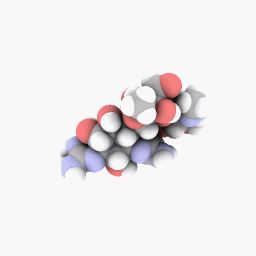Streptomycin
Information about Streptomycin
streptomycin is a broad spectrum aminoglycoside antibiotic typically used for treatment of active tuberculosis, always in combination with other antituberculosis agents.
Liver safety of Streptomycin
Streptomycin is usually used in combination with agents that are known to be hepatotoxic and the role of streptomycin in liver injury has been difficult to assess, but most information suggests that streptomycin is not hepatotoxic.
Mechanism of action of Streptomycin
Streptomycin (strep" toe mye' sin), an aminoglycoside antibiotic, must be given by parenteral injection and is now considered a second line antituberculosis agent, used largely when toxicity has limited use of first line agents. Like other aminoglycosides, streptomycin is thought to act by binding to bacterial ribosomes and inhibiting protein synthesis. Nevertheless, streptomycin is considered bacteriocidal as well as bacteriostatic.
FDA approval information for Streptomycin
Streptomycin was approved for use in the United States in 1956, but its use for most indications has been replaced by more modern aminoglycoside antibiotics. streptomycin is available in vials and as lyophilized powder for injection in multiple generic formulations.
Dosage and administration for Streptomycin
The typical adult dose is 15 mg/kg per day (1 gram daily) intramuscularly or intravenously, usually for the first 2 to 4 months of antituberculosis therapy only. The dose must be modified based upon renal function.
Side effects of Streptomycin
Common side effects are auditory and renal dysfunction.
List of aminoglycosides
Transform your life with W8MD's budget GLP-1 injections from $125.
W8MD offers a medical weight loss program to lose weight in Philadelphia. Our physician-supervised medical weight loss provides:
- Most insurances accepted or discounted self-pay rates. We will obtain insurance prior authorizations if needed.
- Generic GLP1 weight loss injections from $125 for the starting dose.
- Also offer prescription weight loss medications including Phentermine, Qsymia, Diethylpropion, Contrave etc.
NYC weight loss doctor appointments
Start your NYC weight loss journey today at our NYC medical weight loss and Philadelphia medical weight loss clinics.
- Call 718-946-5500 to lose weight in NYC or for medical weight loss in Philadelphia 215-676-2334.
- Tags:NYC medical weight loss, Philadelphia lose weight Zepbound NYC, Budget GLP1 weight loss injections, Wegovy Philadelphia, Wegovy NYC, Philadelphia medical weight loss, Brookly weight loss and Wegovy NYC
|
WikiMD's Wellness Encyclopedia |
| Let Food Be Thy Medicine Medicine Thy Food - Hippocrates |
Medical Disclaimer: WikiMD is not a substitute for professional medical advice. The information on WikiMD is provided as an information resource only, may be incorrect, outdated or misleading, and is not to be used or relied on for any diagnostic or treatment purposes. Please consult your health care provider before making any healthcare decisions or for guidance about a specific medical condition. WikiMD expressly disclaims responsibility, and shall have no liability, for any damages, loss, injury, or liability whatsoever suffered as a result of your reliance on the information contained in this site. By visiting this site you agree to the foregoing terms and conditions, which may from time to time be changed or supplemented by WikiMD. If you do not agree to the foregoing terms and conditions, you should not enter or use this site. See full disclaimer.
Credits:Most images are courtesy of Wikimedia commons, and templates, categories Wikipedia, licensed under CC BY SA or similar.
Contributors: Kondreddy Naveen

